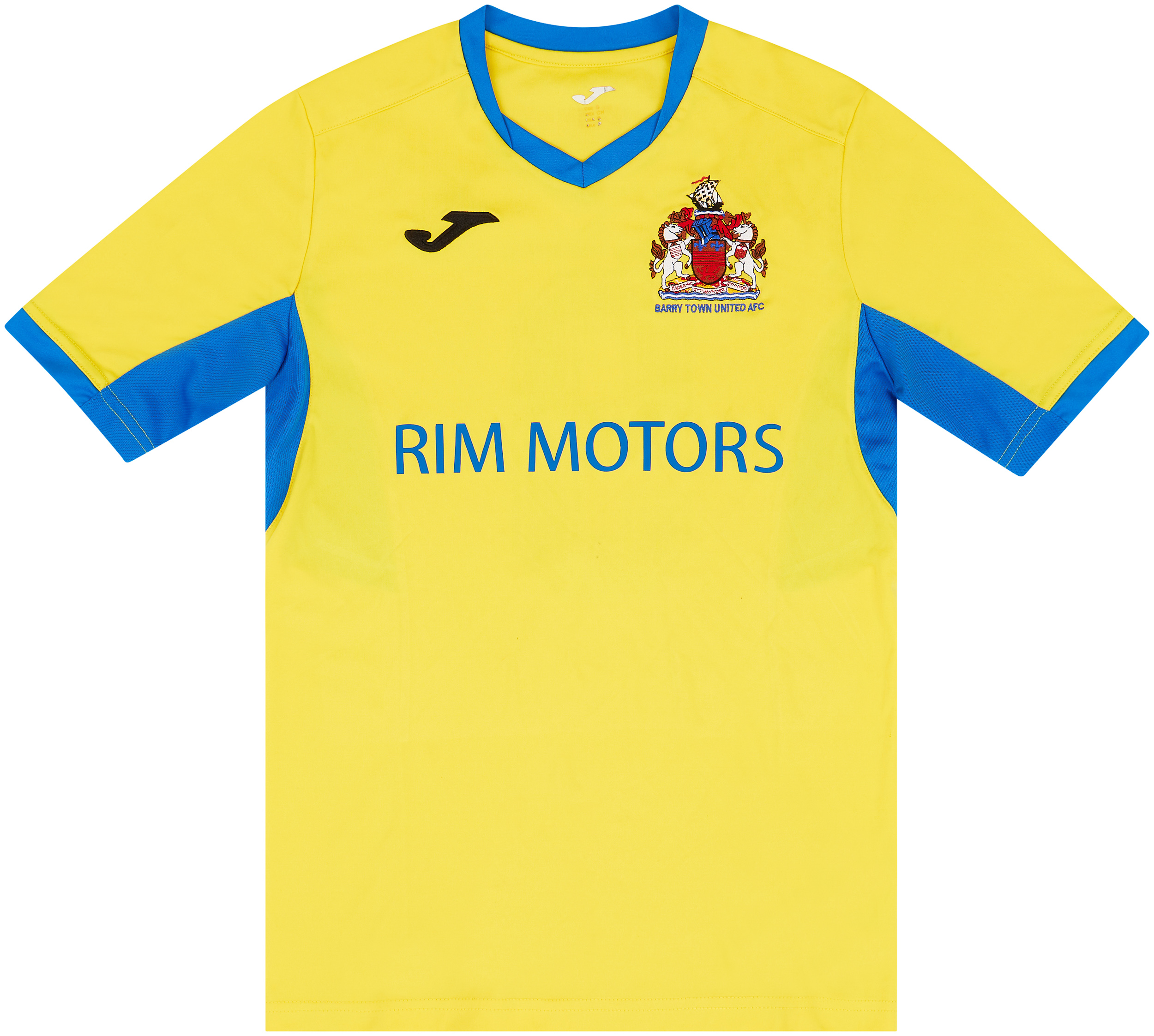Barry Town
Introduction Barry Town United Football Club, known simply as Barry Town, is a football club steeped in a rich history and cultural significance in Wales. Founded in 1883, the club is based in the picturesque coastal town of Barry in the Vale of Glamorgan. Known for its distinct yellow and black colors, Barry Town has […]
1997-98 Barry Town Home Shirt - 9/10 - (XXL)
148.99£ - ca: €176
1996-97 Barry Town Home Shirt - 8/10 - (L)
148.99£ - ca: €176
2016-17 Barry Town United Home Shirt - 8/10 - (S)
47.99£ - ca: €57
Introduction
Barry Town United Football Club, known simply as Barry Town, is a football club steeped in a rich history and cultural significance in Wales. Founded in 1883, the club is based in the picturesque coastal town of Barry in the Vale of Glamorgan. Known for its distinct yellow and black colors, Barry Town has established itself as a staple of Welsh football, celebrating a unique identity that resonates with the passion of its supporters. The club’s long-standing commitment to football at all levels has nurtured local talent and provided an engaging outlet for the community, creating a legacy that endures to this day.
Club History
Barry Town was founded in 1883, initially competing in local leagues before joining the Welsh Football League. Over the years, the club experienced varying fortunes, achieving multiple promotions and demotions. A significant milestone came in 1901 when it was one of the founding members of the South Wales League. The club went on to join the Welsh League in 1910 and has since established itself as one of the oldest and most respected teams in Welsh football. The 1990s marked a golden era for Barry Town as they captured the imagination of football fans, culminating in a memorable UEFA Cup campaign in the 1994-95 season, representing Wales on the European stage. The club’s history is dotted with moments of triumph and tribulation, reflecting the enduring spirit of the team and its supporters.
Achievements
Barry Town boasts a significant list of achievements that highlights its competitive spirit. The club has won the Welsh League title on 23 occasions, making it one of the most successful clubs in the competition’s history. Their dominance extended into the late 20th century, where they clinched five consecutive titles from 1993 to 1998. In addition to league titles, Barry Town has triumphed in the FAW Welsh Cup. Their impressive cup runs include victories in 1992 and 1993, with the club becoming a regular contender. Their historic run in the 1994-95 UEFA Cup, where they notably faced the esteemed Belgian side, Anderlecht, remains a pivotal moment in the club’s annals, bringing them international recognition. Despite facing challenges, including financial difficulties and relegation, Barry Town’s resilience has been central to its long history.
Significant Players and Matches
The club has been home to many notable players who have contributed significantly to its legacy. One of the most iconic figures is John Sutherland, who made over 200 appearances for the club in the 1980s and 1990s. His leadership on the pitch and work ethic have left a lasting impression on supporters and aspiring players alike. In more recent years, players like Lee Kendall and Chris Hugh have made their mark, showcasing the club’s ability to develop talent. Memorable matches in Barry Town’s history include their thrilling 1996 Welsh Cup final, where they faced Caernarfon Town in a hard-fought contest, illustrating the competitive spirit that defines the team. The club’s capacity to engender excitement and perseverance continues to thrill fans during both victories and defeats.
Cultural Impact
Beyond the pitch, Barry Town has played a significant role in the local community. The club has fostered an enthusiastic fanbase that passionately supports its team, creating a vibrant atmosphere during home matches at the revamped Jenner Park. Local supporters take immense pride in their club, often organizing community events that further strengthen relationships between the club and the town. The club’s community engagement programs promote youth development and encourage local participation in football, underlining the importance of grassroots involvement. For many residents, match days have become essential social events that unite the community, enhancing local identity and pride.
Conclusion
In conclusion, Barry Town stands as a remarkable institution in Welsh football, representing an intersection of history, achievement, and community spirit. From its origins in 1883, the club has witnessed significant developments and challenges, yet it has remained resolute in its dedication to the beautiful game. With a wealth of achievements, a rich history of great players, and its deep cultural impact, Barry Town has carved out a lasting legacy in both Welsh and football history. As the club continues to flourish and contribute to the local area, the love for Barry Town remains steadfast, ensuring its story will continue to be written for generations to come.


